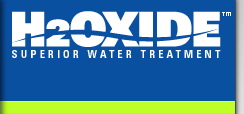Water, the lifeblood of our planet, plays a central role in the complex web of ecosystems. It sustains life, influences climate, and serves as a barometer of environmental health. For environmental scientists and researchers, understanding and monitoring water quality is paramount. In this article, we will embark on a journey into the world of effective water sampling techniques, a foundational practice in environmental research. Whether you're a student conducting a research project or a professional in the field, it's crucial to ensure the accuracy of your findings. When it comes to analyzing water quality data, it's often helpful to seek expert assistance. If you need help with analyzing the data you've collected or require a well-crafted response essay on the topic, don't hesitate to buy a response essay at https://topwritingservice.com/response-reaction-paper/ from our experienced writers who can provide valuable insights and guidance.
Preparation and Planning
-Setting Clear Objectives:
- Before setting foot in the field, clarity of purpose is essential. Defining precise research objectives not only focuses your efforts but also determines the sampling methods, parameters, and sites crucial for your study's success. Objectives are the North Star guiding your research.
-Site Selection:
- Where you collect samples matters as much as how you collect them. Strategic site selection is based on factors like geographic diversity, proximity to potential pollution sources, and ecological significance. A well-chosen site is a treasure trove of data.
Sampling Equipment and Supplies:
- The tools of the trade are your allies in gathering accurate data. Bottles, containers, samplers, and safety gear are your companions in the field. Their calibration, maintenance, and proper use are non-negotiable for reliable results.
Water Sampling Techniques
Sample Collection Methods:
- In the realm of water sampling, a myriad of methods exists. Grab sampling, a snapshot in time, captures a single moment's story. Depth profiling delves into the water column's secrets, revealing stratification and variation. Integrated sampling, over time, weaves a comprehensive narrative. Choosing the right method hinges on your research questions and site conditions.
Quality Control and Quality Assurance:
- Precision is paramount. Ensuring the reliability of your data involves rigorous quality control and quality assurance. Field blanks, replicates, and quality control samples are your gatekeepers against error. Consistency and meticulousness are your allies in the battle for accuracy.
Handling and Preservation:
- From the moment your samples are collected, their integrity is in your hands. Preventing contamination and preserving their pristine state is your responsibility. Proper handling procedures, from labeling to storage, are your safeguards against data corruption.
Data Analysis and Interpretation
Laboratory Analysis:
- The journey of your samples continues in the laboratory. Safely transporting them is vital, ensuring their journey's end is an accurate analysis. Modern labs equipped with cutting-edge technology await your samples, whether it's chemical, biological, or physical measurements you seek.
Data Interpretation:
- Raw data is the canvas; interpretation is the brushstroke of understanding. Collected data speaks in the language of water quality. Parameters like pH, dissolved oxygen, nutrient levels, and pollutant concentrations hold the secrets of aquatic ecosystems. Deciphering this language unlocks the stories held within.
Reporting and Documentation:
- Your research is only as valuable as your ability to communicate its findings. Comprehensive reporting, replete with data summaries, graphs, and statistical analysis, is your conduit to sharing discoveries. Your documentation of methods and results ensures transparency, peer review, and future reference.
Conclusion: Advancing Environmental Research Through Effective Water Sampling
In the dynamic arena of environmental research, water sampling is the cornerstone. By mastering the art of preparation, selecting the right tools, employing rigorous methods, and interpreting data with finesse, environmental scientists and researchers advance our understanding of aquatic ecosystems. The commitment to precision and the pursuit of knowledge ensure a healthier, more sustainable future for our planet.




